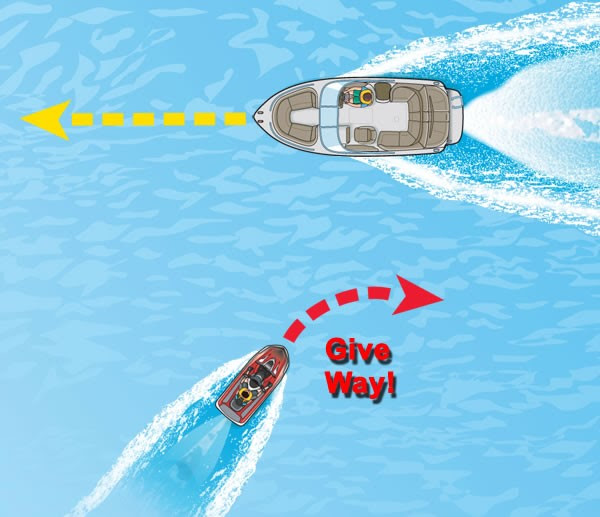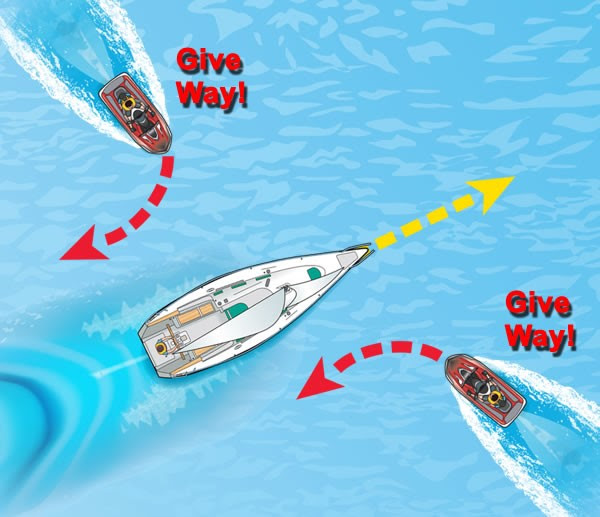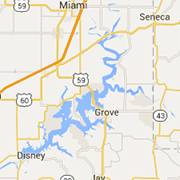July 10 GRDA Weekly Update
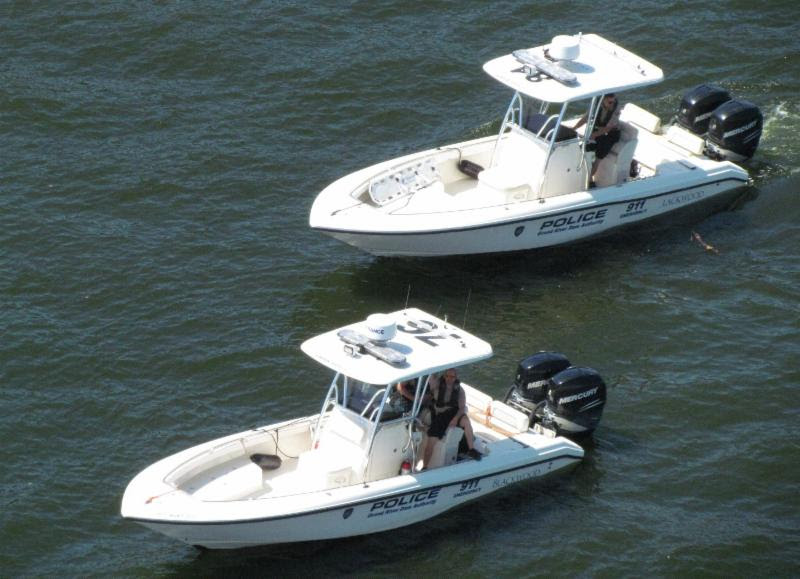
Ending Distractions Makes Boating Safer for Everyone

PWC's Still Targeted in Thefts

GRDA Police continue to investigate reported thefts of personal watercraft on north Grand Lake. The majority of the incidents are occurring north of Sailboat bridge from Hickory Point to the Elk River area. Most are likely occurring at night, but there are some reports of daytime thefts and with the amount of boat traffic during the holidays, exact timing cannot be determined.
While some of these PWC's are found to be floating away from the owners docks, property owners are reminded to be vigilant in securing and watching your property, as well as that of your neighbors. Report suspicious activity to GRDA Police at 918-256-0911.
On The Road or The Water, Your Headed Nowhere Fast While Impaired
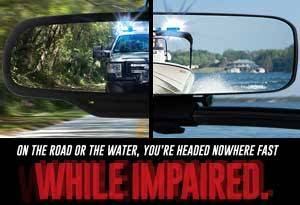
Drowning Tragedy

GRDA Controlled Hunts 2018

Always wear a life vest
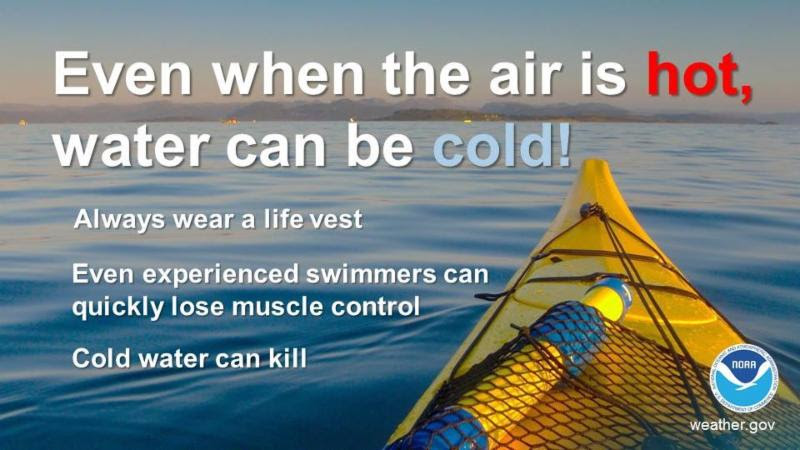
Did You Know?

Illinois River
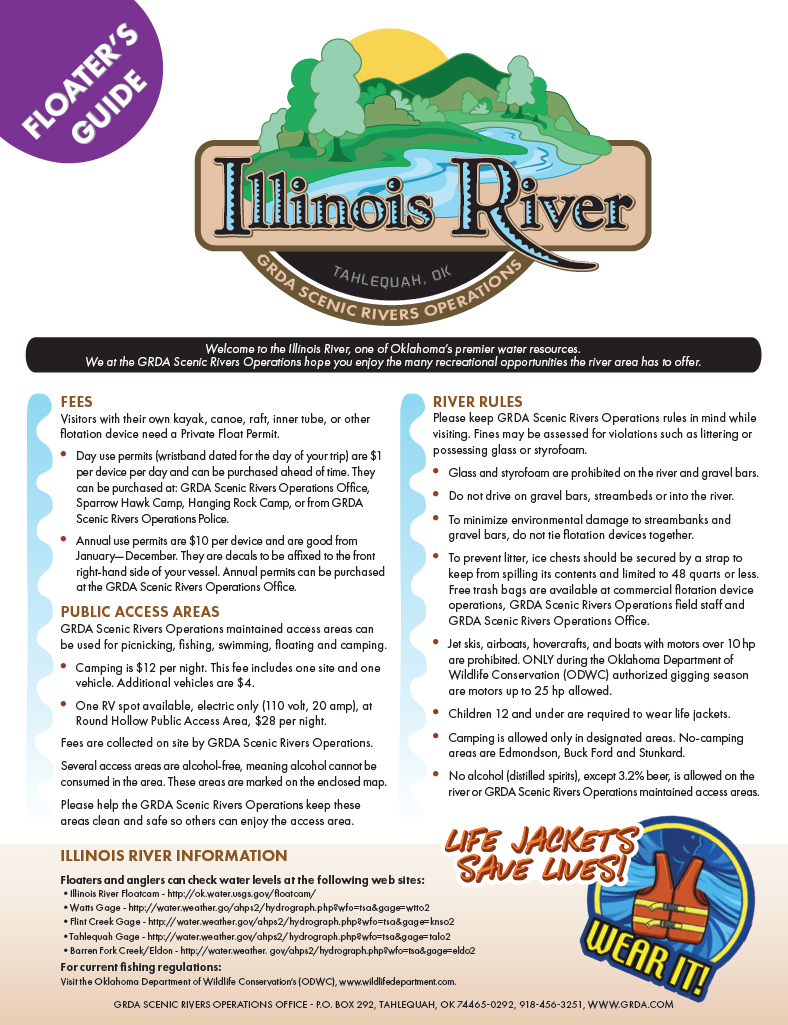
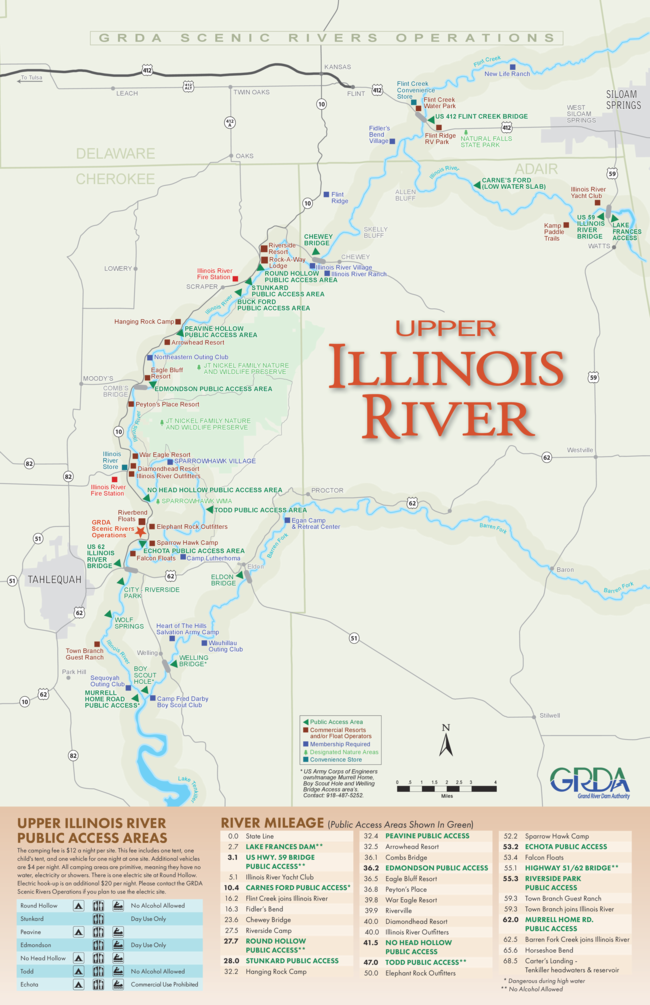
Considerations for a Safe Float Trip

- Inform the commercial flotation device operation if you or anyone in your party are a first-time or novice floater(s) so that they may pair you with an experienced paddler/floater or float you in a raft so there is a reduced risk of capsizing.
- Wear a personal flotation device at all times.
- Never swim or boat alone. Stay within sight of companions.
- Do not float when river levels are at flood stage.
- If you capsize, stay with your flotation device on the upstream side. Resist the urge to grab a fixed object & don't get pinned between the flotation device and a rock or tree.
- When tired, take a break on a gravel bar to relax.
- Do not dive into the river from bridges, bluffs, stream banks and trees.
- Never swing on rope swings and jump into the water as there may be submerged logs and tree branches that could injure you.
- Bring sunglasses, extra cover up clothing, hat and suntan lotion. The sun reflecting off the water will give a person without sunglasses a headache and the extra clothing gives you added protection to avoid sunburn.
- Take water, tea, Gatorade, other thirst-quenching drinks and peanut butter crackers or similar snacks. Avoid beer and soft drinks since they tend to dehydrate the body, and avoid alcohol use, since that can impair judgment.
- Wear river wading shoes to avoid cuts to your feet.
- Never take anything on your float trip that you don't want to lose. Leave your car keys with the commercial float operator for safe keeping;
- Camp only in designated areas. Avoid being trapped by rising water against bluffs or on gravel bars.
- Do not tie flotation devices together as it against the law and violators are subject to fine.
- Do not use glass and Styrofoam containers.
- Don't litter. Use provided trash bags and receptacles.
- Shower with soap and water after swimming.
- Wash cuts and scrapes with clean water and soap after swimming.
- Wear ear plugs.
- Wear swim goggles.
- Take children to the restroom frequently.
- Use swim diapers on infants.
- Stay away from any area that has floating debris, oil sheens or dead fish.
- Do not swim after a heavy rain.
- Do not swim if you have cuts or scrapes.
- Do not swim near storm drains.
- Do not swim in stagnant (unmoving) water.
- Do not swim in water with a green surface scum.
- Do not ingest water.
Life Jackets Save Lives
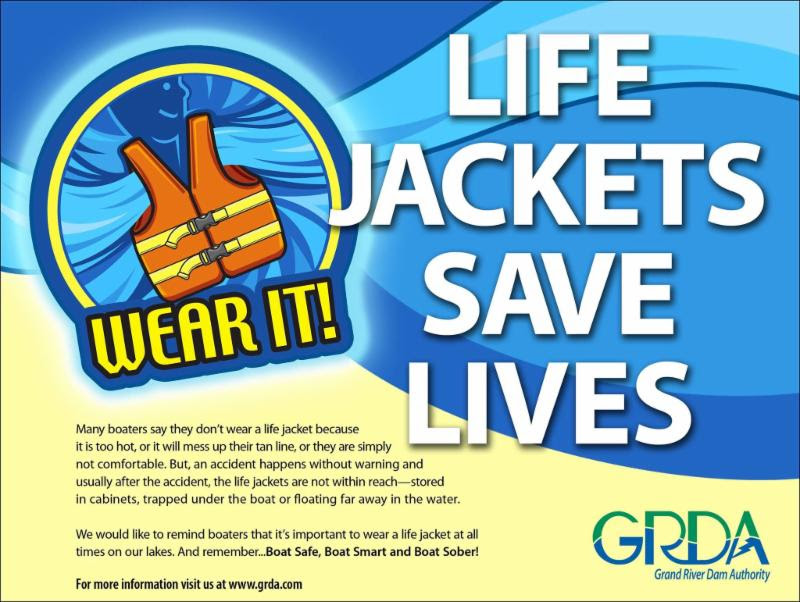
Lake Rules
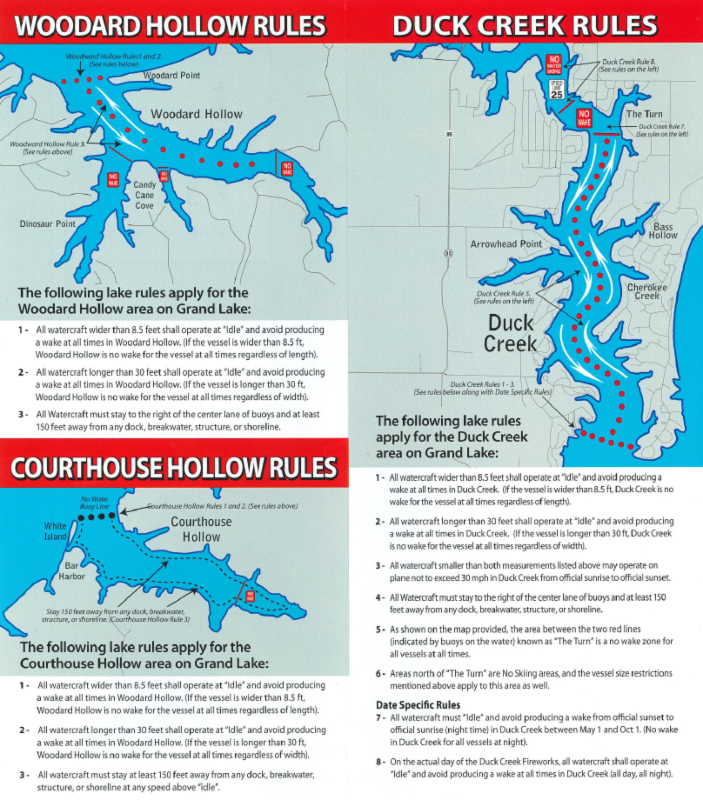
Updates on the Web

Did you not receive our latest GRDA Update? Do you have a friend that wants to see our Updates? You can now go to our website at GRDA.com to view the latest edition of GRDA Police Updates. Go to the Lakes/River tab, open the GRDA Police tab and click on the GRDA Police Update for the latest version of our email release.
Boating Tips From the GLSPS

NAV TIME

- Practice good seamanship.
- Keep a sharp lookout.
- Maintain a safe speed and distance.
